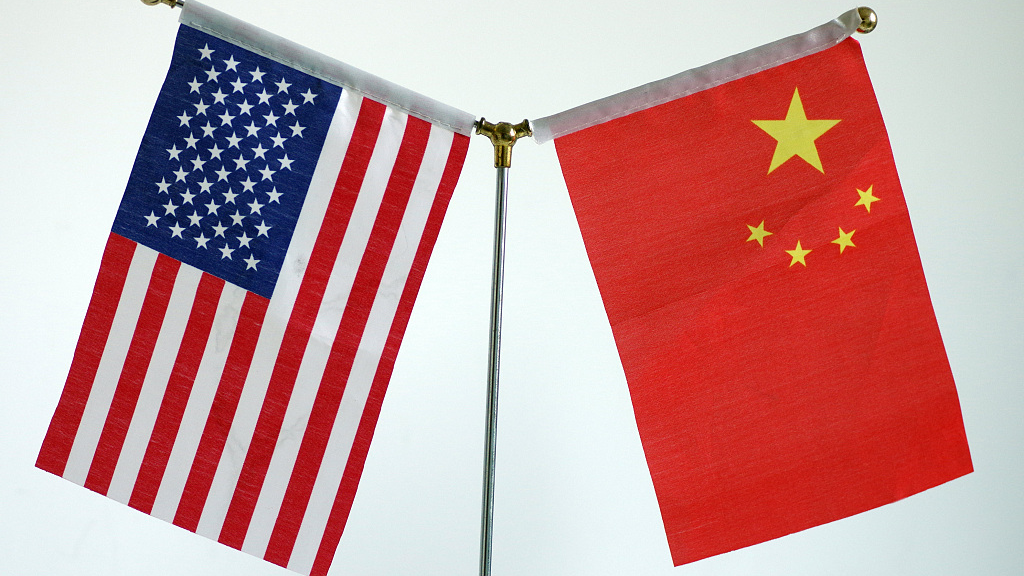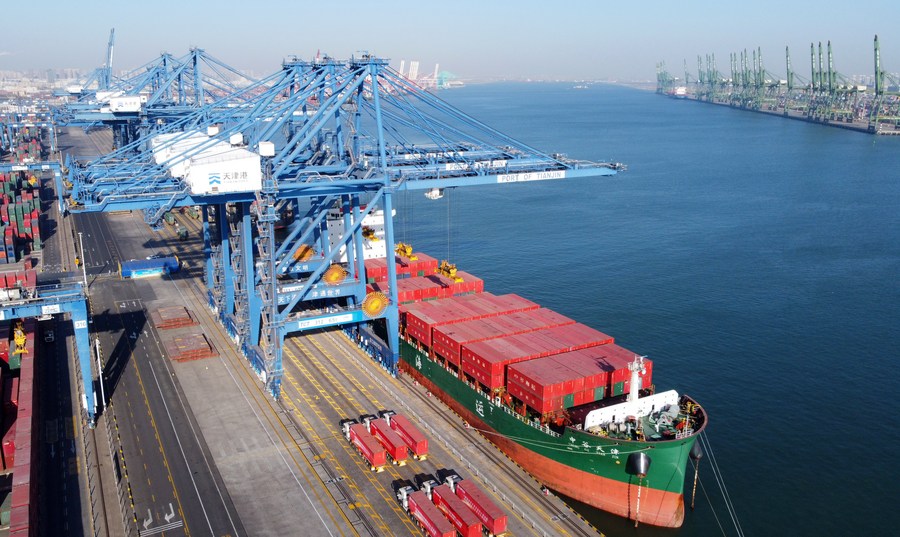
Editor's note: Anthony Moretti is an associate professor at the Department of Communication and Organizational Leadership at Robert Morris University. The article reflects the author's opinions and not necessarily those of CGTN.
There are few constants in our world. Information is an exception. With access to the Internet through a computer, tablet or smartphone, you and I can gather news and opinion from across the globe.
Sadly, not enough Americans explore the depth of information available to them. Perhaps worse, government, think tanks and media elites, often working together, regularly craft an incomplete narrative about America's allies and its "adversaries." And when it comes to China, a flawed narrative can be identified almost daily.
I am working on a research paper that examines this tension between plenty of information and a one-sided presentation about China. I admit, collapsing a multi-page manuscript into a few hundred words means I am omitting plenty of details. I hope there is enough depth here so you can understand what I am discovering.
Let's acknowledge the U.S. was the world's economic and technological powerhouse during most of the 20th century. That dominance combined with the West's triumph in the Cold War led political philosopher Francis Fukuyama to suggest 30 years ago that history had come to an end: Liberal democracy would be adopted by all nations in the future, Fukuyama claimed. He was wrong.
China didn't adopt the Western model, therefore the rise of China is embraced with trepidation. According to the Western narrative, China refuses to act like "us," an ignorant statement that equates China's history, traditions and culture as somehow inferior to the West's.
China will not adapt to the West, a reality that adds to the unease. Michael Schuman, who had reported for Bloomberg from China, has affirmed the Chinese remain resolute that they need not become more Western. "On the one hand, Beijing realizes it benefits from being part of the current U.S.-led global order," he wrote. "On the other, Beijing isn't willing to embrace that order fully and accept its norms."

A smart container terminal at Tianjin Port in north China's Tianjin. January 17, 2021. /Xinhua
A smart container terminal at Tianjin Port in north China's Tianjin. January 17, 2021. /Xinhua
The next piece to this anti-China narrative recognizes that China is likely to become the world's leading economic nation within a few years.
John Ross, a senior fellow at the Chongyang Institute for Financial Studies, Renmin University of China, wrote an editorial for the Guardian almost a decade ago. And his message remains true today. Ross noted the West had turned China's economic growth into something almost Orwellian:
"When confronted with such gigantic economic growth and improvement in human living conditions the rational response would be to study the case intently to find out what can be learned from such success. But instead, a strange new approach has been developed: China is more economically successful than the rest of the world therefore it must be China's economic policies which are wrong!"
It is doubtful the United States alone will own the 21st century. In fact, it might not be America's at all, a reality that adds yet another layer of fear when too many Westerners think about China, which has transformed itself into a global economic and technological powerhouse in less than 50 years.
And then there is technology, which for our purposes includes everything from smartphones to artificial intelligence. As you might guess, China's commitment to technological advancement consistently is associated in the West with nefarious goals, but no such connection is made when U.S. or Western nations are scrutinized. That remains true even though Edward Snowden provided unimpeachable evidence that the U.S. government used its power and relationships with U.S. technology giants for such ends.
To put it all together, U.S. government officials, think tank experts and leading news agencies never stray from this idea: China's actions are hostile to the Asian region and the world. Meanwhile, any similar acts by the United States are either ignored or passed off as necessary or justified.
The unending loop quickly gains traction throughout the U.S., sustaining a framework identifying China as a danger to America's hegemony. The credibility of the Chinese people and the technologies and other items produced in the country are always called into question, while America's credibility is never doubted.
It is no secret the United States and China regularly engage in public displays of enmity. Often issues of technology -- soon morphed into questions about national security -- quickly become framed in the Western media and in the narrative advanced by major political figures and leaders at various think tanks as China cannot be trusted.
This drumbeat of negativity undermines the delicate and important relationships between the two nations and the conversations that take place whenever U.S. and Chinese leaders meet.
My research makes the argument that the American public is not being served by the biased assessment of China's history, potential and ambitions coming from the elite media and so-called experts. Trust is essential if real progress between the two sides is to be found in addressing the many international challenges associated with the 21st century technology world. And the harsh narratives about China cloud that trust to the detriment of the U.S. audience. By extension, the Chinese and global audiences also are not well served by such reporting and pontificating.
(If you want to contribute and have specific expertise, please contact us at opinions@cgtn.com. Follow @thouse_opinions on Twitter to discover the latest commentaries on CGTN Opinion Section.)

